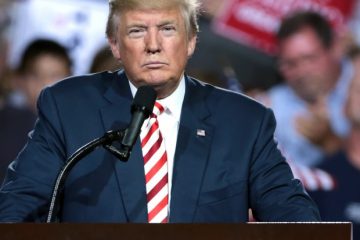
Kompromat or not, Russia already has a winner in Trump
By all accounts the relationship between President Donald Trump and the Kremlin holds the makings of a dark, Hollywood thriller. Trump is a US President at war with his own intelligence agencies, whilst denying – only to later admit – Russian interference in the election. Freshly inaugurated, he already faces comparisons to a modern-day Manchurian Candidate, referring to the 1959 novel about a brainwashed president controlled by sinister, external forces. But how fair is this? And do we really know what the Russians are up to? As a political scientist, my research examines the tools of contemporary warfare and influence used by the Kremlin. Thus far I have identified over 40 tools of Russian state power, military and non-military. The …
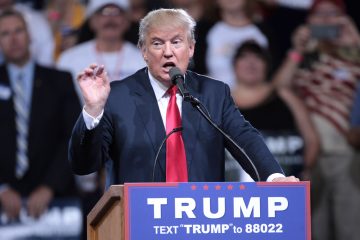
How voter turnout could put Trump in the White House
I recently spent a month travelling in the US and the word on the street is that Donald Trump could be the next president. Before the EU referendum earlier this year, I wrote about public opinion in the UK. At the time, most political pundits were predicting a remain result but there was a noticeable public sentiment to leave. Something similar is happening in the lead up to the US presidential election. While many political commentators still find it difficult to accept that Trump is a contender, many of the people whom I met on my road trip expect him to win. Of course, given voting is not compulsory in the US, voter turnout will have a big influence on the result. …
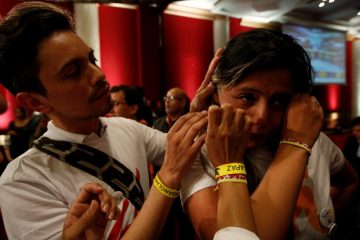
Colombia has voted no on its plebiscite for peace. Here’s why and what it means
On Sunday, the Colombian people rejected the recent peace deal that the Colombian government had reached with the Revolutionary Armed Forces of Colombia (FARC) after 52 years of civil war. The plebiscite narrowly failed: 50.2 percent rejected the peace accord, while 49.8 percent were in favour. What, exactly, were Colombians voting on? Colombians cast votes on whether they support the peace agreement, reached in August and formally signed on Sept. 26. The content of the 297-page peace accord had been made public before the vote. Who voted no? The “no” vote is not representative of all Colombians. Less than 40 percent of Colombians voted in the plebiscite, leaving many voices unheard. This was partly related to weather conditions; the Caribbean …
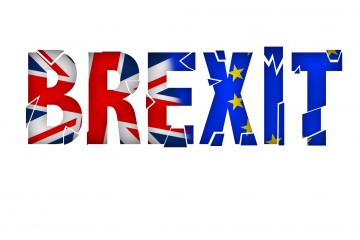
The 1975 Referendum on Europe
The United Kingdom joined the European Economic Community (as it then was) on 1 January 1973 after negotiations by the Conservative government led by Edward Heath. In the run up to the subsequent 1974 General Election the Labour Party pledged, in its manifesto, the United Kingdom’s first nationwide referendum on whether to stay part of the Economic Community on renegotiated terms or to completely part company. With a Labour victory, the new Prime Minister, Harold Wilson, followed through on his promise and a referendum was held on 5 Jun 1975. The outcome was an overwhelming victory (67%) for the ‘In’ campaign. The 1975 vote in favour of Europe did not, however, end the debate on the United Kingdom’s membership of what …
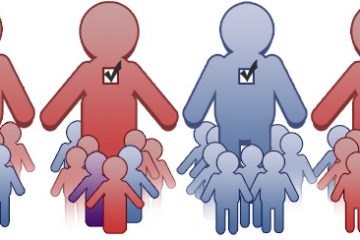
The Boundaries Review is a chance to bring back multi-member constituencies
In earlier generations voters were spoiled for choice. Between 1832 and 1885 many had more than one vote in general elections. The British parliament contained county and borough constituencies and these, depending on size, would return two to four MPs with voters able to vote for as many candidates as there were seats to be filled. A recipe for chaos, perhaps, but there were advantages to these multi-member constituencies. For instance, the Liberals could put up a left-wing radical as well as a traditional Whig, thus broadening their appeal to the electorate. [One wonders whether such an approach could appeal to the modern Labour party]. The upshot was that electors had a choice of which MP to turn to for …

Four Lessons from Brexit and its Fallout
There is no shortage of lessons to be learned from Brexit and its fallout – for politicians, businesses and the public alike. For strategists, analysts and advisors, these past few weeks have provided a host of examples of both good and bad practice. Surveying recent events, four take-aways stand out: 1) Forecast, don’t predict No one predicted this. Nor did the polls or the betting markets. Even the leaders of the Leave campaign did not predict Brexit. More than this, though, no one predicted that within weeks of a vote all of the Leave campaign’s victorious leaders would have resigned from the field and a new Prime Minister (who supported Remain, however quietly) would be installed in Downing Street. Polling …
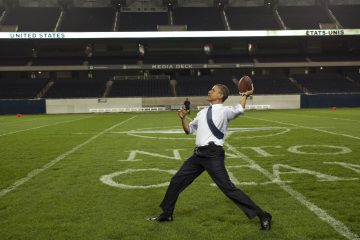
Primaries as Sports and Spectacle: Sports Metaphors in Twenty-First Century Presidential Primary Debates
‘The Brawl Begins’, an article about the 2016 primaries in The Economist provides the most overt manifestation of how a discourse of sports has permeated contemporary political reporting. Describing elections as a “jaw-dropping spectacle” or referring to the Iowa caucuses as the “opening round” in a political boxing match, a prime example of horse-race journalism, is particularly prevalent in presidential primary elections. This is due to the lengthening of the primary period and the truism that the “newsworthiness of what a candidate says about public policies is limited” because “once a candidate makes known his position on an issue, further statements concerning that issue decline in news value”.[1] In these elections, televised debates – which Craig Allen Smith compares to the Super Bowl, …

Contested Constitutions: A Microcosm of post-Arab Spring Divisions
Five years after Mohamed Bouazizi’s self-immolation in Sidi Bouzid, Tunisia ignited the Arab Spring. Yet while it inspired hope for democratic transition across the Middle East and North Africa, the region continues to be embroiled in civil war, terrorist networks, and crises of political legitimacy. In Syria and Bahrain, dictators used violence to thwart protests, leading to a prolonged civil war in Syria. In Yemen, despite the dictator’s negotiated transfer of power, rival sectarians are vying for power. In Tunisia and Egypt, dictators stepped down without much bloodshed. Lastly, in Libya, rebels overthrew the dictator with foreign military aid, but soon succumbed to factional warfare. This article will explore the interlude of democratic or semi-democratic politics in Tunisia, Egypt and …









